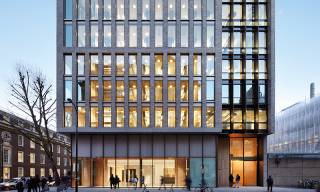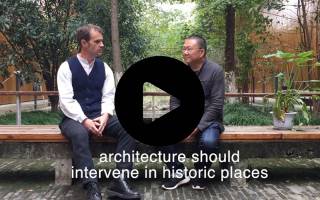This programme pioneers a fresh and critical approach to architecture and historic urban environments at a world-leading architecture school.
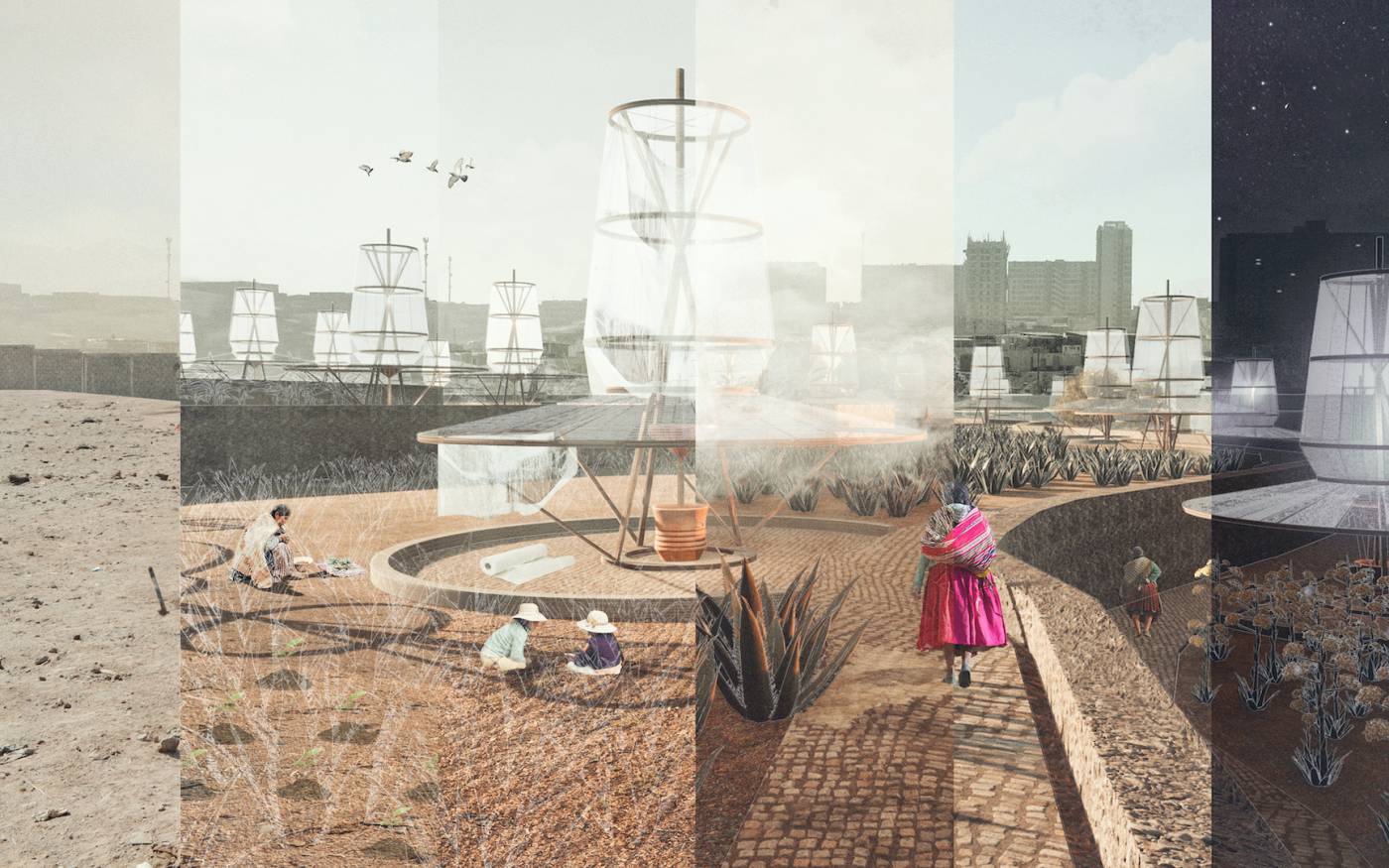
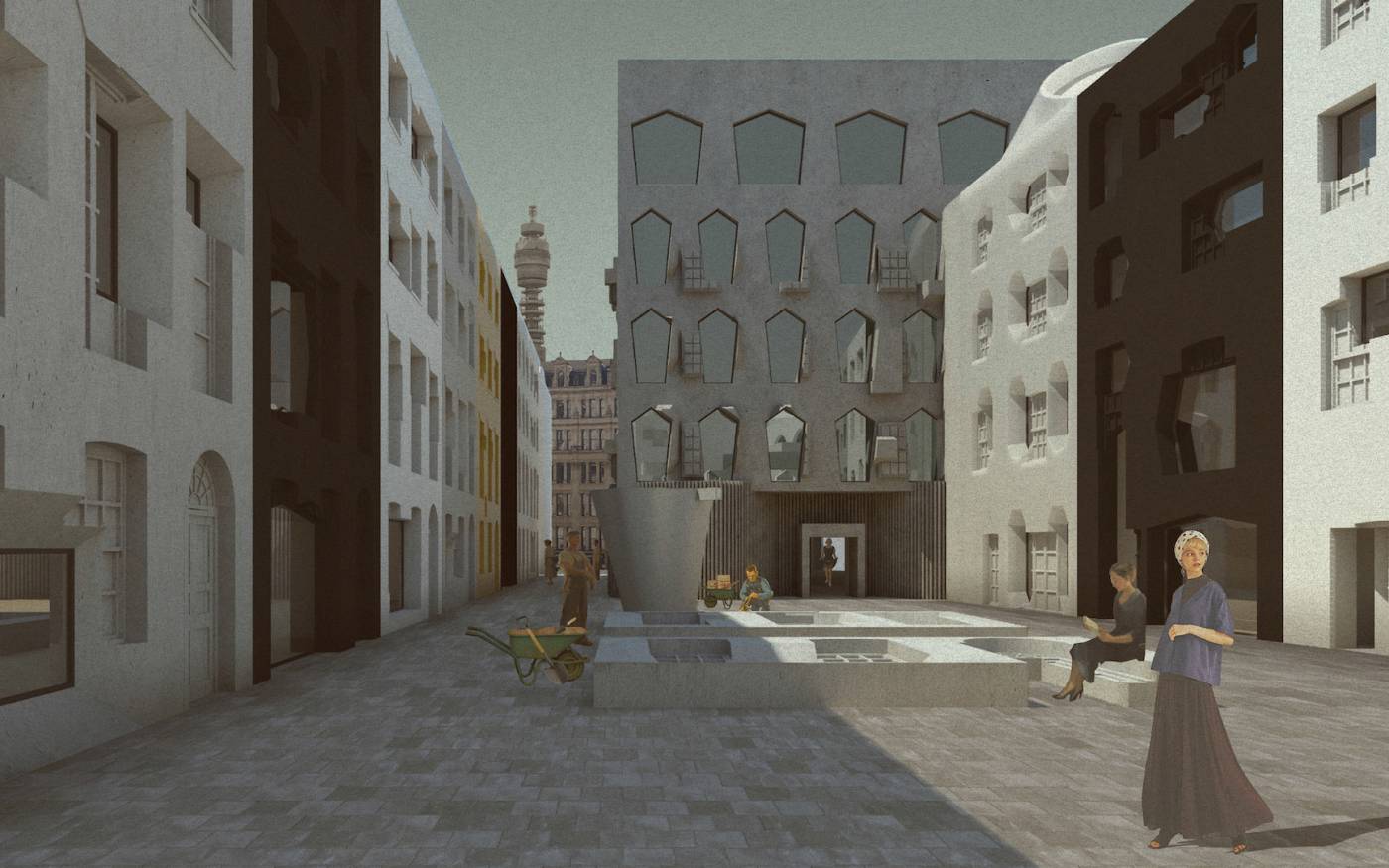
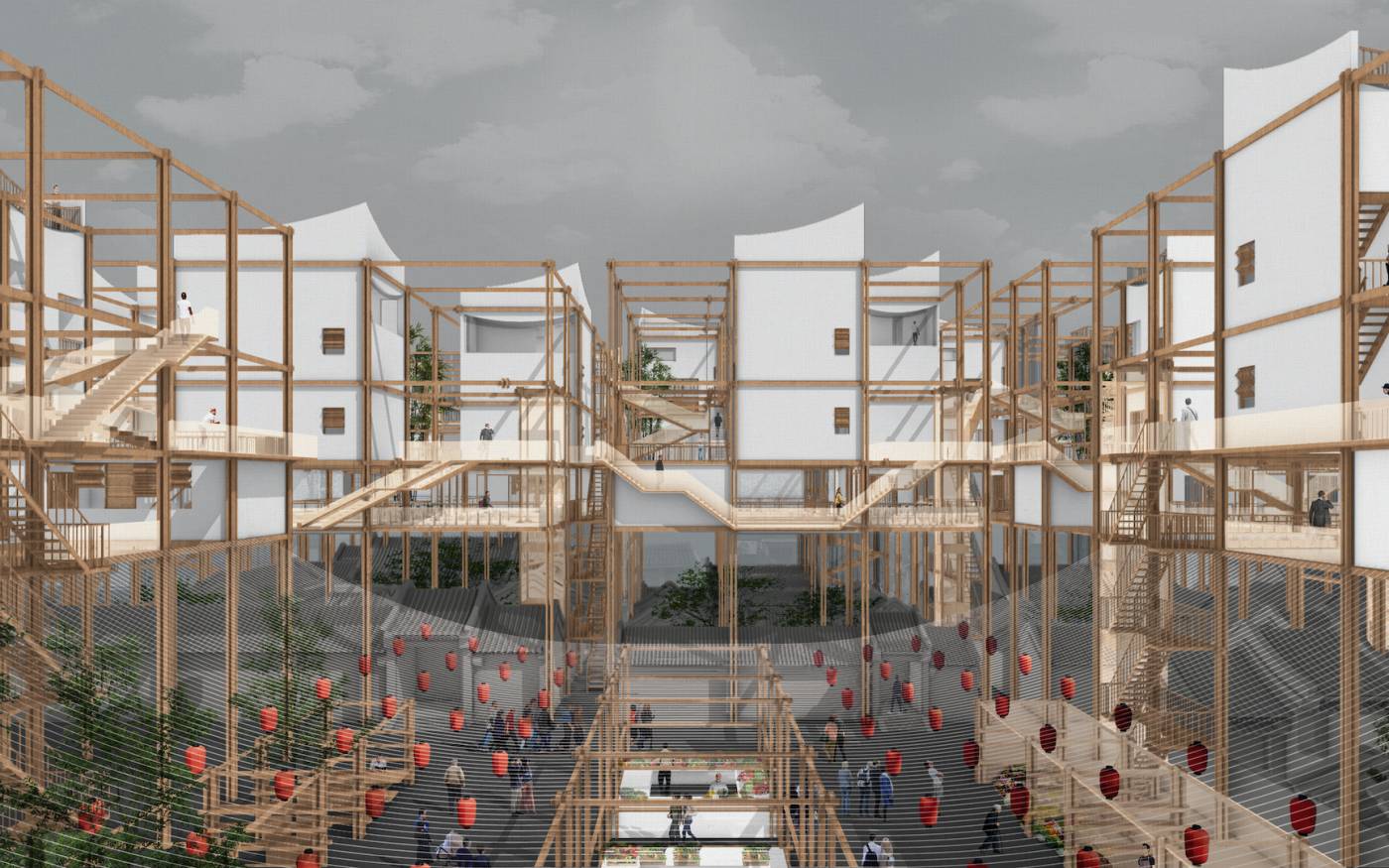
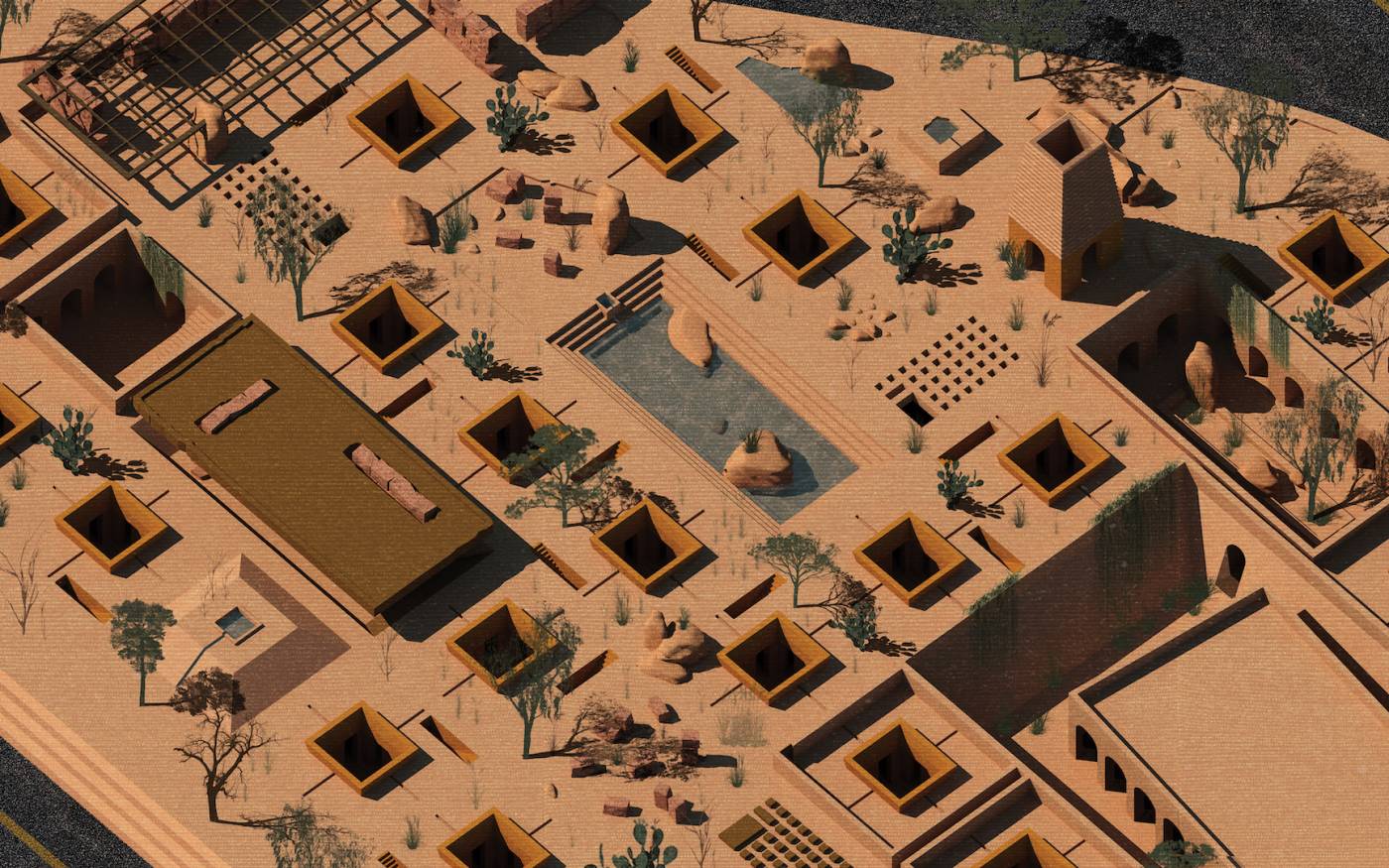
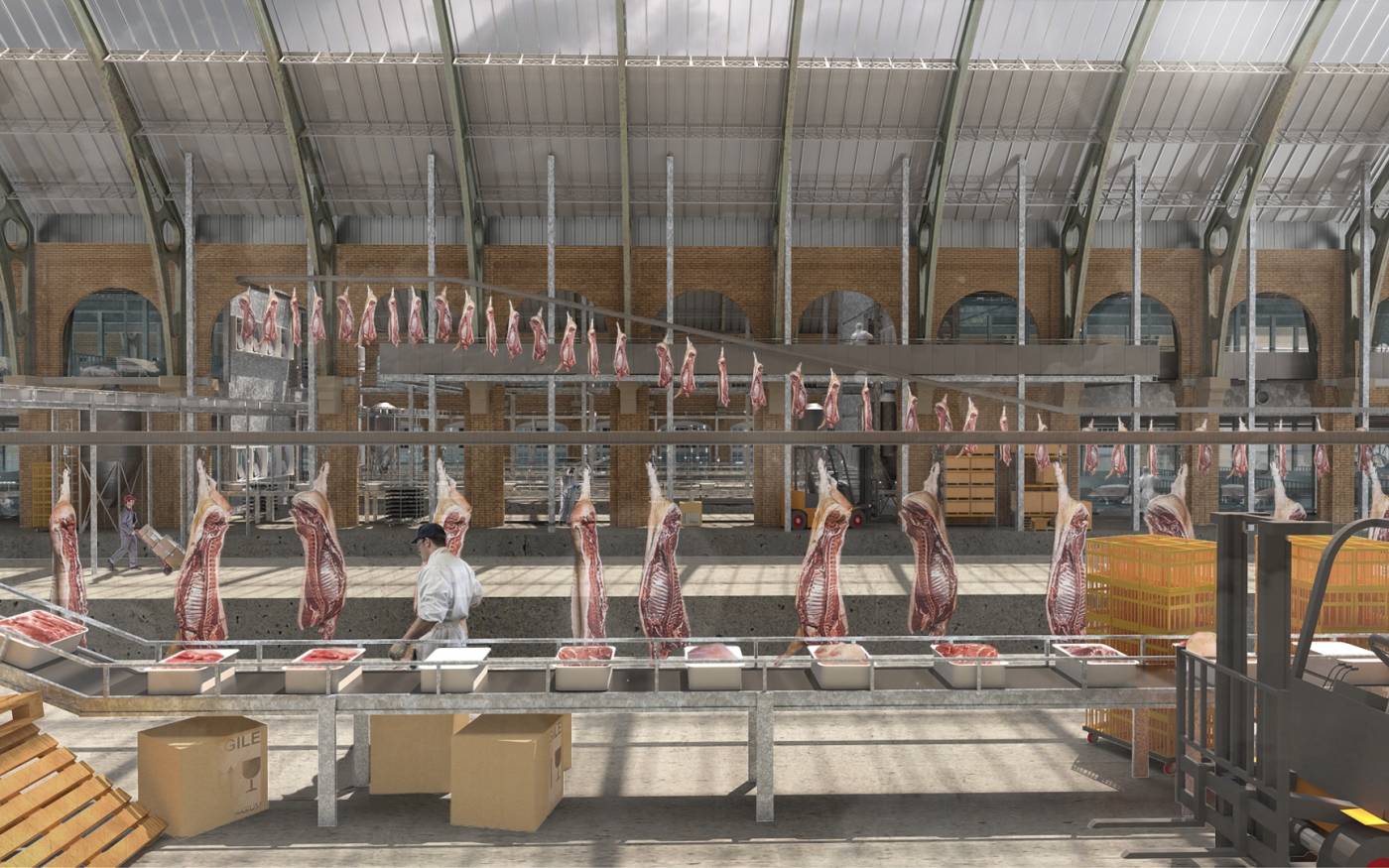
About
We are living in a time of planetary crisis. Historically, the built environment has been a major contributor to this problem, but in the future, in a world that has already largely been constructed, it must be the site of profound solutions. This programme strives to achieve an urgent and radical transformation, asking students to critically engage with the past to build a better future by reinterpreting, rejuvenating, recreating and rethinking urban environments at all scales.
Using London as an outstanding laboratory for learning, students are encouraged to interrogate the past through a rigorous analysis of the present, identifying and addressing historical inequities – environmentally, racially, spatially, and socially – ingrained in the urban fabric and common to all cities.
Supported by an outstanding team of award-winning tutors comprising internationally renowned designers, historians and researchers, students learn innovative urban strategies and engage with key issues concerning urban and cultural heritage alongside the theory and practice of urban surveying, recording, mapping and analysis. Throughout the programme, students are encouraged to develop their own creative practice and critical voice, which are expressed fully in the production of a Final Project that responds to and reflects the programme’s aims of building equitable futures from inequitable pasts.
Highlights
- Work with a team of outstanding designers, researchers and historians to develop creative and restorative approaches to historic urban environments
- Learn from London’s complex history, develop transferable skills for historical research and design practice that confront and overcome past inequities
- Develop skills in urban surveying, recording and mapping to inform your design vision, informed by guest lectures and field trips to world-renowned sites
- Become and advocate of positive change through your own creative practice, concluding in the exhibition of your work at The Autumn Show
“Whilst studying this Master’s, I advanced my creativity and learnt new ways of thinking about and practicing architecture. The teaching was exceptional and allowed me to explore the interdisciplinary nature of architecture, exploring urbanism, conservation and heritage, ethnography, site writing, philosophy and art all in one degree.
Androniki Pappa, 2019 graduate and Architectural Assistant at Alexandra Steed Urban
“I learnt to think about architecture as a diverse discipline, to break the boundaries of design and research, and to explore my career potential at a world-renowned institution.
Longhua Gu, 2019 graduate and architect at Benoy Ltd. London studio
“The theoretical and practical methodology of this programme, as well as the weekly discussion of contemporary issues, provided me with a refreshing and critical approach to rethinking heritage practice, addressing hegemonic power relations and the climate crisis that compromises our historic environments today.
Francisca Pimentel, 2021 graduate and Senior Architect at the Chilean Studio Tándem
Modules
Core modules
- Issues in Historic Urban Environments (15 credits)
Module coordinator: Prof Edward Denison and Dr Emily Mann
In this module students are introduced to the issues, approaches and questions related to historical research. They consider how architectural disciplines express concepts and theories regarding urban environments in case studies ranging from rapidly growing economies to developing nations.
- Design Research for Historic Environments (15 credits)
Module coordinators: Maxwell Mutanda and Lakshmi Rajendran
Students learn about the different design-based research methods they will need throughout the programme, including elements of design, architectural history and theory, cultural studies and urban theory. Students investigate contemporary architectural solutions, urban conditions and social, economic and cultural practices, and propose creative interventions that challenge, reinterpret, reuse and enhance the historic environment.
- Design Practice for Historic Environments (30 credits)
Module coordinators: Maxwell Mutanda and Lakshmi Rajendran
The work undertaken on this module builds upon the knowledge and skills gained in Design Research for Historic Environments. Students develop their own design proposals for either reusing and reshaping a chosen site or producing a broader design strategy for an urban environment. Students develop their skills in digital design and fabrication and can present their project in the form of a portfolio, or physical or digital models, a series of photographs or drawings, or an animation or film.
- Surveying and Recording of Cities (30 credits)
Module coordinator: Dr Sarah Milne
Through a series of lectures, seminars, practical workshops and walking tours of London, this module teaches students how to document urban historic environments in social contexts.
Using London as a case study, students also explore methods for the surveying, researching and recording of architectural heritage in cities, keeping in mind that urban fabric is an expression of social history. Students build a robust knowledge of how to read the city, its architecture and its topography with a view to understanding historic context, as well as techniques for assessing and investigating architectural heritage, such as fabric analysis and archival research, including the use of online resources.
- Final Project (60 credits)
Module coordinators: Professor Edward Denison, Maxwell Mutanda and Lakshmi Rajendran
Guided by their specialist supervisors, students draw upon the work carried out over the course of the year to produce an original research project in the form of a dissertation, design proposal, film, artwork, gallery installation or digital scripting. Students’ research projects can be sited anywhere in the world and examine how the historic architectural and urban contexts, or the role of design, theorisation implementation and management, can help to reinterpret and reinvigorate the existing urban fabric.
Optional modules
Students complete 30 credits from modules either on this programme or other programmes at The Bartlett School of Architecture. Options include, but are not limited to:
- 3D Scanning for Urban Environments (15/30 credits)
Module coordinator: Thomas Parker
The module aims to give students a practical understanding of how 3D scanning technologies work, concentrating on LiDAR, photogrammetry and handheld scanning. It aims to inform students where each technology is most appropriately used according to the type and scale of subject matter and their downstream applications, in context of the wider industries. Students will develop competency in one or more of the technologies and conduct a proficient and safe scan of a site or site feature which is then realized into an appropriate outcome for presentation.
- Histories of Global London, 1900 to the Present: Part I (15 credits) & Histories of Global London, 1900 to the Present: Part II (30 credits)
Module coordinators: Professor Ben Campkin and Dr Clare Melhuish
Taking London as our primary case study this module focuses on understanding how the city’s built environment has been shaped by its global connections and associated population flows, from 1900 to the present. It considers the changing framework of planning and community development legislation at a number of definitive moments, such as the publication of the County of London Plan (1943). The module draws on ethnographic, literary and visual sources to analyse key changes in the built environment in relation to the cultural representation of minority social groups.
- Representations of Architecture in Britain Since 17th Century (30 credits)
Module coordinator: Prof Murray Fraser
The module introduces the idea that to understand cities we have to attend to the ways that they are produced through varied cultural experiences: experiences of time, space, social identity, economics, technology, etc. Furthermore, it proposes that these different experiences can be explored in relation to certain kinds of architecture and urban space at different scales, ranging from particular city places or spatial typologies of building to specific sub-elements of buildings. Students successfully completing the module will be will be equipped with the intellectual tools to analyse cities as both physical entities and cultural artefacts which provide the setting for manifold social experiences.
This module is part of Architectural History MA.
- Representations of Cities (30 credits)
Module coordinator: Professor Iain Borden
The module introduces the idea that to understand cities we have to attend to the ways that they are produced through varied cultural experiences: experiences of time, space, social identity, economics, technology, etc. Furthermore, it proposes that these different experiences can be explored in relation to certain kinds of architecture and urban space at different scales, ranging from particular city places or spatial typologies of building to specific sub-elements of buildings. Students successfully completing the module will be will be equipped with the intellectual tools to analyse cities as both physical entities and cultural artefacts which provide the setting for manifold social experiences.
This module is part of Architectural History MA.
- Multiple Modernities Architecture (15/30 credits) - SUSPENDED, 2021/22
Module coordinator: Professor Edward Denison
This module is aimed at students interested in critically engaging in social and cultural architectural practices across historical, theoretical and design disciplines in a global context. It advocates a reassessment of architectural historiography in the twenty-first century, by providing a historical, critical and scholarly approach to interdisciplinary studies of modernity in relation to architectural encounters both outside the West and outside conventional Modernist discourses. Students are encouraged to question established architectural histories and dominant historical narratives, especially those founded in the twentieth century and associated with encounters with modernity globally.
This module is part of Architectural History MA.
- Critical Spatial Practice: Site Writing (30 credits)
Module coordinators: Polly Gould and Professor Jane Rendell
Through discussion of texts and projects, and the production of a piece of site-writing in the form of an installation and/or artist’s book, this module examines the relationships between critical spatial practices and theories from a transdisciplinary perspective.
This module is part of Situated Practice MA.
- History and Theory of Digital Design (30 credits)
Module coordinator: Professor Mario Carpo
This seminar will assess the present state of computer-based design by situating today's digital turn within the long duration of the history of cultural technologies. It will first describe the technical logics of hand-making, mechanical reproductions, and digital making, and highlight the differences between digital variability, manual and artisanal variations, and the mechanical mass-production of identical copies.
This module is part of Architecture & Digital Theory MRes.
- Materialist Ecological Architecture (15/30 credits)
Module coordinator: Professor Peg Rawes
This module examines understandings of a modern history and theory of ecology from a materialist perspective. It aims to develop students’ ability to identify how architectural histories and theories of ecology are informed by discourses in architecture, art, philosophy, scientific and environmental disciplines. Students will develop the capacity to define and evaluate a specific ecological ‘site’ (building/place/artefact), and to develop critical ways of engaging with ecological discourses in architecture.
This module is part of Architectural History MA.
- Practices of Criticism (15/30 credits)
Module coordinator: Dr Robin Wilson
This module explores interdisciplinary theories of criticism, the practice of criticism within architecture and its related disciplines, and the role of the photographic image within, and as, critical practice. Students examine how these approaches inform the writing and imaging of architectural and urban historiography today.
This module is part of Architectural History MA.
- Mediated Environments (30 credits)
Module Coordinator: Henrietta Williams
In this module, students explore the potential of the film-essay to discuss architectural themes. Initially, students construct a sonic environment, developing skills in sound recording, field recordings, multi-track audio editing. Following this, they develop their sound work into a film essay, using High Definition Video recording, narrative development, scriptwriting, scoring ad editing to produce a piece of video that responds to a chosen site in London.
This module is part of Situated Practice MA
Key information
Modes/duration
Full-time: one year
Flexible: two to five years.
Entry requirements
This programme is seeking applications from excellent students, dedicated to the field. A minimum of a second-class UK degree in an appropriate subject or an overseas qualification of an equivalent standard. Candidates who hold either a professional or other qualification, obtained by written examinations and approved by UCL, together with at least three years of appropriate professional experience may also be admitted.
A design/creative portfolio is also expected. Applicants will be asked to submit a portfolio of their design work once their completed application has been received, and should not send or upload work until it has been requested.
- Read the complete entry requirements for this programme on the UCL Graduate Prospectus
- Read the full guidance on portfolio prepration
Application guidance for 2024 entry
Applicants can only apply for a maximum of two postgraduate degree programmes at The Bartlett School of Architecture.
Application deadline
Applications for 2024 entry will open on 16 October 2023 and close on 5 April 2024 (for applicants requiring a visa) and 30 August 2024 (for applicants not requiring a visa). We strongly advise early application, as our programmes are over subscribed and competition is high.
Deferral
It is not possible to defer an offer at The Bartlett School of Architecture. If you wish to be considered for the following year then you must reapply in the next admissions cycle.
Tier 4 Student visa holders
Tier 4 Student visa holders are required to meet the English language proficiency of their offer with sufficient time to obtain a CAS number and visa.
Accepting your offer
To accept your offer, you must pay the non-refundable fee deposit and decline any other offers for programmes at The Bartlett School of Architecture. If you do not respond within the given time indicated on your UCL offer letter, then your offer will be withdrawn.
Fees and funding
- Tuition fee information can be found on the UCL Graduate Prospectus.
- For a comprehensive list of the funding opportunities available at UCL, including funding relevant to your nationality, please visit the Scholarships and Funding section of the UCL website.
- You may also be interested to explore The Bartlett Promise Scholarships, now available to Master's students. These scholarships aims to enable students from backgrounds underrepresented in The Bartlett, UCL’s Faculty of the Built Environment, to pursue their studies.
Staff
- Jane Wong, Acting Programme Director
Jane Wong is an architect and educator working across design, visual culture and writing. Her work focuses on the relationships between familiar and neglected histories, and social and political processes that shape landscapes and the built environment. She is the co-author and lead researcher of ‘Towards Spatial Justice: A guide for achieving meaningful participation in co-design processes’ (2022, RIBA and UCL-funded) and ‘Co-designing Public Space: In Policy and Practice’ (funded by the British Council). She has practised in Berlin and London, where she led numerous public realm projects and strategic visions for estates and the cultural sector, such as the Royal Albert Hall and the Portman Estate, and research studies on accessibility and inclusivity. She teaches at the Bartlett School of Architecture on the MSci programme and the MA Architecture and Historic Urban Environments. She was born in Hong Kong and studied at the Architectural Association.
- Maxwell Mutanda, Design Tutor and Personal Tutor
Maxwell Mutanda is a pluridisciplinary researcher and visual artist whose data visualisation and architectural practice investigates the role of globalisation, climate and technology within the built environment. His achievements include the 2018 AFRICA’SOUT! Artist-in-Residence at Denniston Hill, New York; 2020 Rapid Response for a Better Digital Future Fellow at Eyebeam; a 2020 Graham Foundation Grant to Individuals; a 2020 Cultural and Artistic Responses to Environmental Change grant from the Prince Claus Fund; as well as fellowships from The New Museum’s IdeasCity New Orleans; and Akademie Schloss Solitude, Stuttgart (2020). Maxwell is Co-Director of Equality, Diversity and Inclusion at The Bartlett School of Architecture, an editorial contributor to The Architectural Review and is a trustee on the board of York Mediale.
- Lakshmi Rajendran, Design Tutor and Personal Tutor
Lakshmi Rajendran is an architect and urbanist. Her research interests deal with urban and cultural studies, critical social and digital media, spatial representation and practice, identity negotiations, and cultural encounters in contemporary cities. She is also interested in an interdisciplinary understanding of social, spatial, temporal, and material practices in cities and a comparative study of these practices in the Global North and South. Lakshmi is Co-Director of Equality, Diversity and Inclusion at The Bartlett School of Architecture.
- Dr Sarah Dowding, the Survey of London Team and Module Coordinator
Dr Sarah Ann Dowding is an architectural historian at the Survey of London. She trained as an architect before moving into architectural history, specialising in early modern London. She now writes about urban buildings of all types and from all periods. As module co-ordinator, Sarah is supported by the Survey of London team.
- Thomas Parker, 3D Scanning Tutor and Module Coordinator
Thomas Parker is an architectural designer, fabricator, and multi-disciplinary artist whose interests lie in experimental forms of digital representation and making. He has an industry-led background in 3D scanning, having worked with ScanLAB Projects as a designer on over 100 projects ranging from surveying to fabrication as well as film, documentaries and performance. He lectures at The Bartlett School of Architecture, teaching Architecture MArch PG17, and is a PhD candidate investigating unconventional forms of accuracy in digital mediums.
- Guang Yu Ren, Departmental Tutor (International) and Tutor
Guang Yu is an architect and architectural historian working in the fields of cultural heritage with a focus on the experiences of modernity outside the West. Guang Yu practiced in China before working with international organisations such as UNESCO and the World Bank on heritage projects globally. Her work led to the significant nomination of Asmara, Eritrea, as the first African modernism site in the UNESCO World Heritage list. Guang Yu's work on Japanese-occupied Manchuria is recognised by RIBA President's Medal for Research. She joined The Bartlett in 2017 as an architectural thesis supervisor across the school's programmes. She is the director for History and Theory for Architecture MSci (ARB Part 1 & 2) and leads a seminar group for Year 3.
- Danielle Purkiss, Model Making Tutor
Danielle Purkiss is an architect interested in material culture, technology and circular economy design. She is a research fellow at the UCL Plastic Waste Innovation Hub and Institute of Making and teaches in the UK and internationally.
- Barbara Campbell-Lange, Design Tutor
Professor Barbara Campbell-Lange is an architect and educator. She has worked across industries and disciplines internationally, and with a series of Pritzker Prize/RIBA Gold Medalists and AHRC-funded doctoral candidates in fine art painting, photography, architecture. She has written on the material–immaterial qualities of details, buildings and boundaries including a unique collaboration with Irish engineer Peter Rice for An Engineer Imagines. She has taught, examined and advised at the AA, RCA, ETH, Cambridge, Harvard and recently stepped in as acting Director of the Bartlett School of Architecture. She is presently unfurling the tangible and intangible heritages of an artist’s studio in central London for those who are no longer and not yet present.
- Dr Emily Mann, the Survey of London Team
Emily Mann is Associate Professor of Architectural History, Race and Spatial Justice at The Bartlett School of Architecture, having previously taught and studied at the Courtauld Institute of Art in London. Her research and teaching centres on the relationship between architecture, material culture and European colonialism, considering in particular the significance and interconnections of mapping and building in both colonised spaces and imperial cities, and the representation of land and architecture in image and word. At the same time as investigating historical processes, she is concerned with postcolonial/decolonial approaches and attitudes to empire’s legacies. She has also worked extensively in journalism and publishing, and is incoming Editor of the journal Architectural History.
- Dr Colin Thom, the Survey of London Team
- Ievgeniia ‘Jenia’ Gubkina, Architectural and Urban Historian
Ievgeniia ‘Jenia’ Gubkina is a Ukrainian architect, architectural and urban historian, and curator. Her work focuses on architecture and urban planning of the 20th century in Ukraine, with a multidisciplinary approach to heritage studies. Jenia is a co-founder of Urban Forms Center, a leading Ukrainian NGO that specialises in the study, preservation, and popularisation of Modernist heritage. She is the author of the books “Slavutych: Architectural Guide” (2015) and “Soviet Modernism. Brutalism. Post-Modernism. Buildings and Structures in Ukraine 1955–1991” (2019). In 2020–2021 She curated the “Encyclopedia of Ukrainian Architecture”, an online multimedia project that worked with architecture, history, criticism, cinema, and visual arts. In 2023, Jenia’s latest book, "Being a Ukrainian Architect During Wartime" was released, offering insights into her experiences against the backdrop of the war.
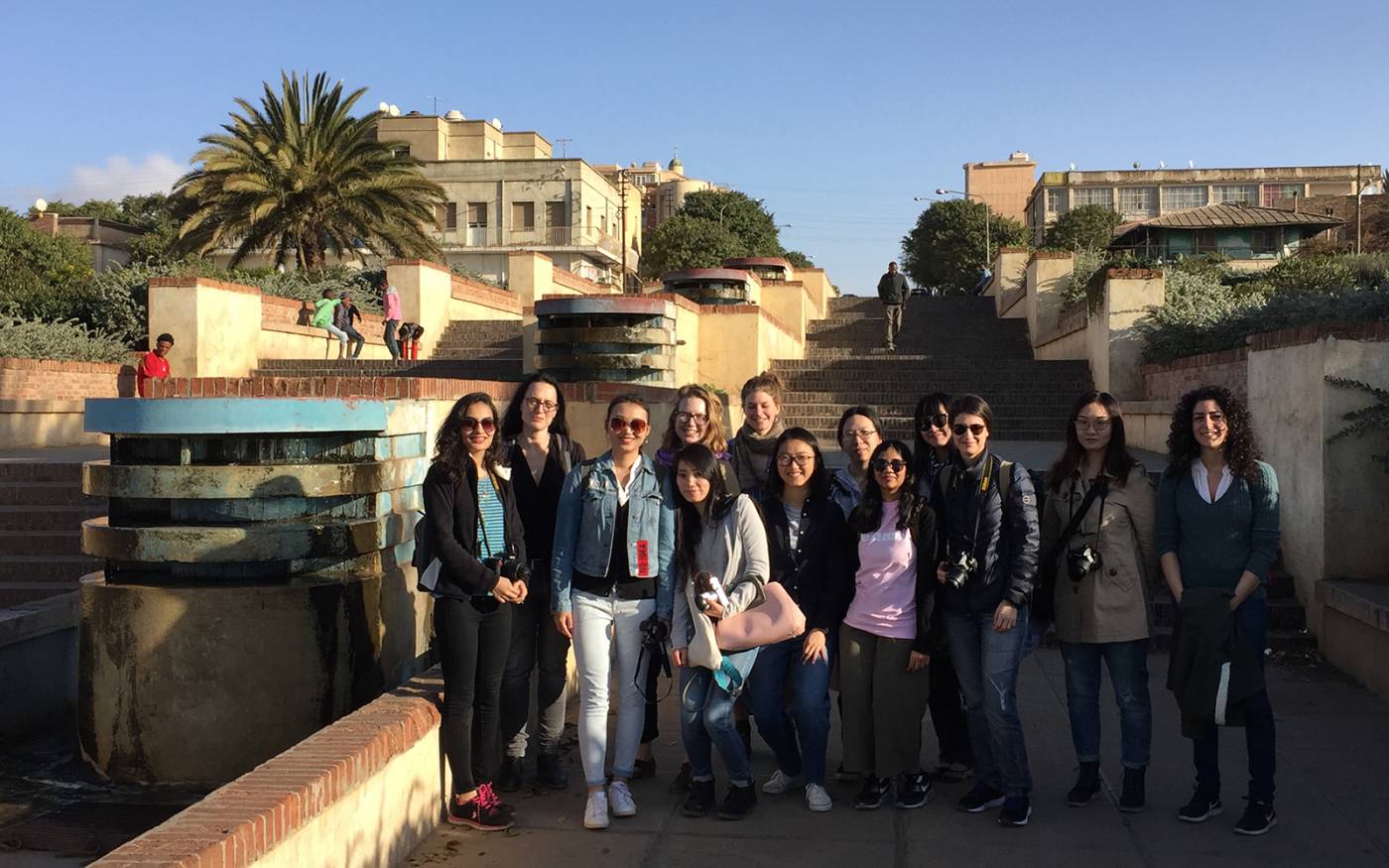
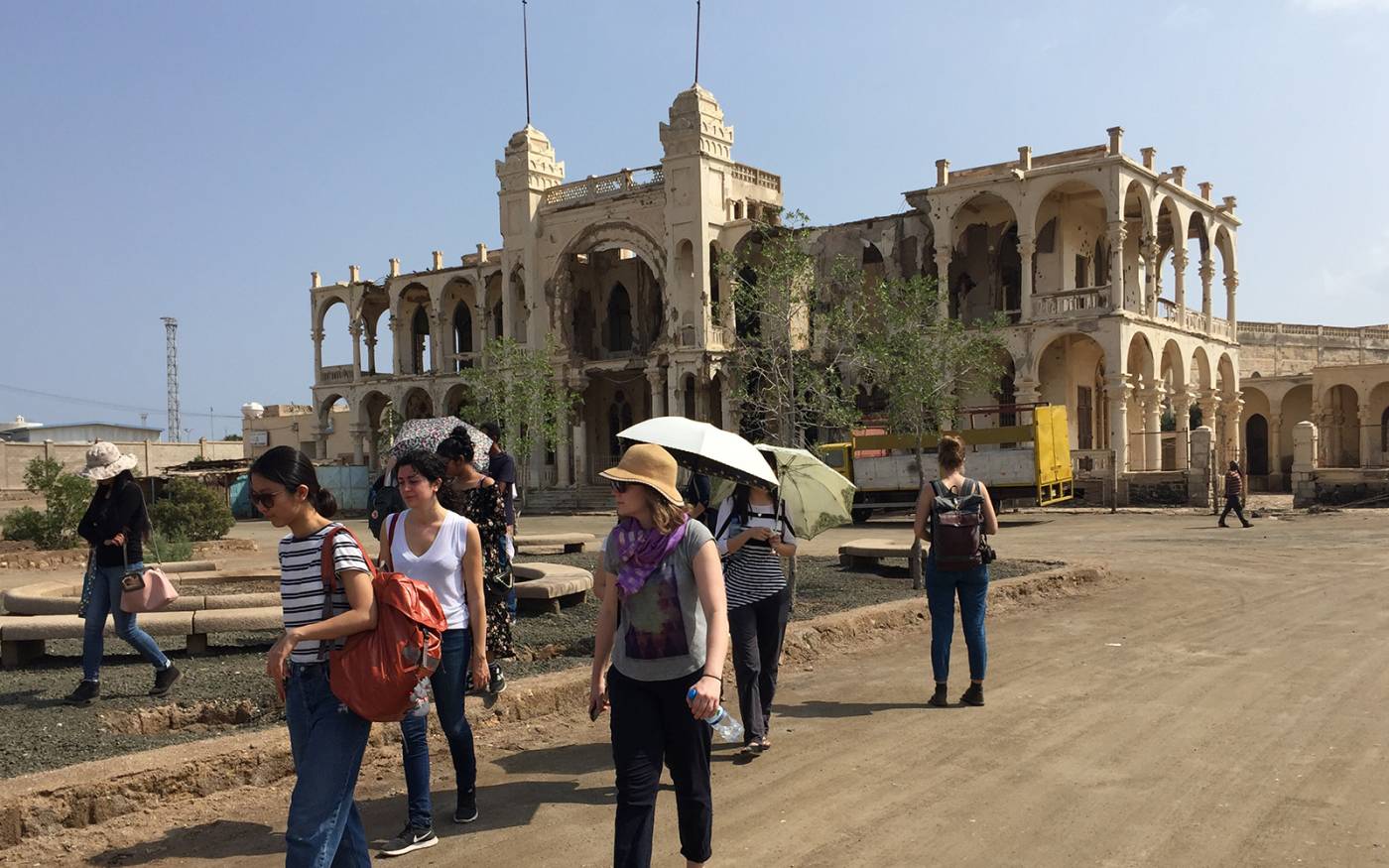
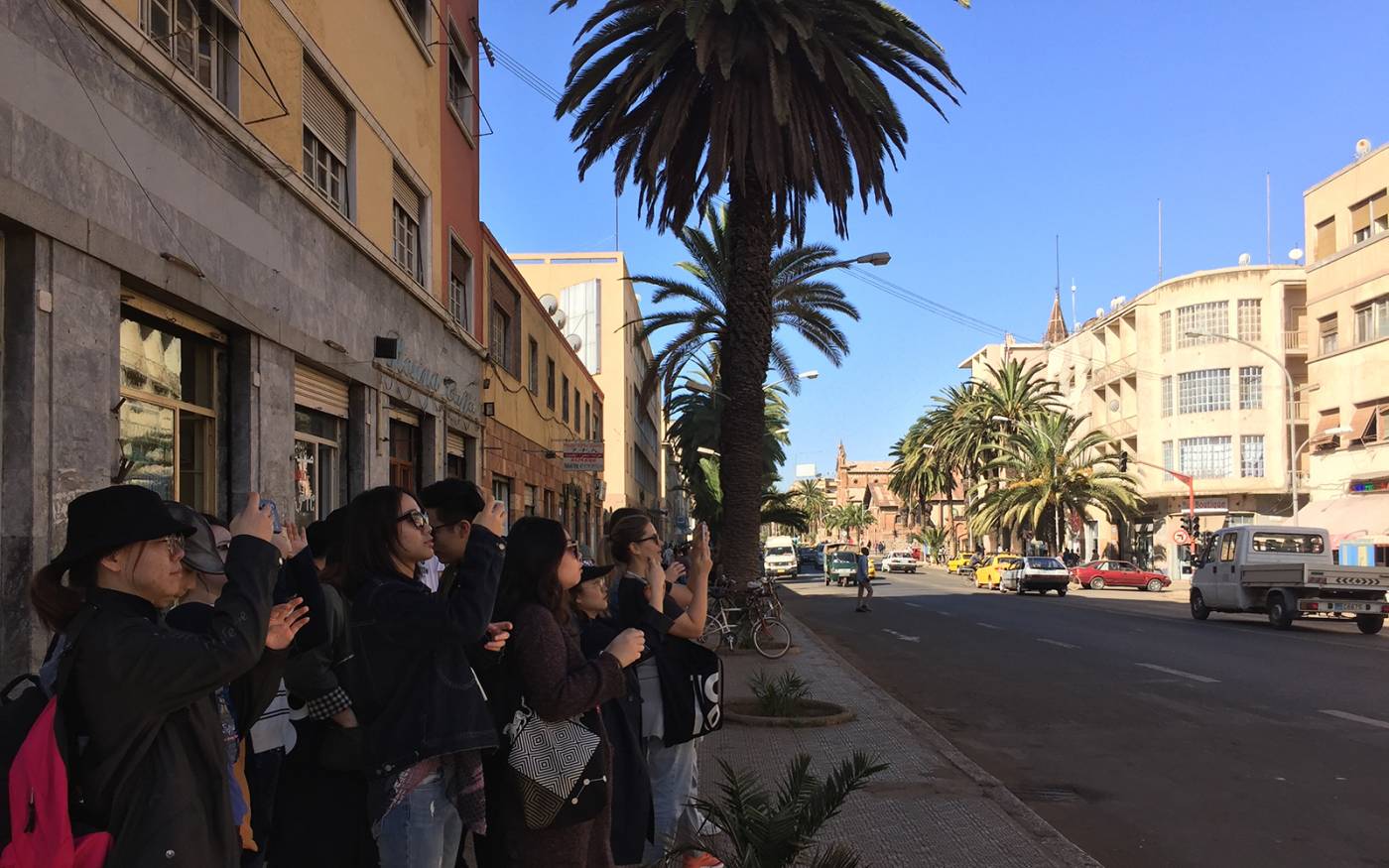
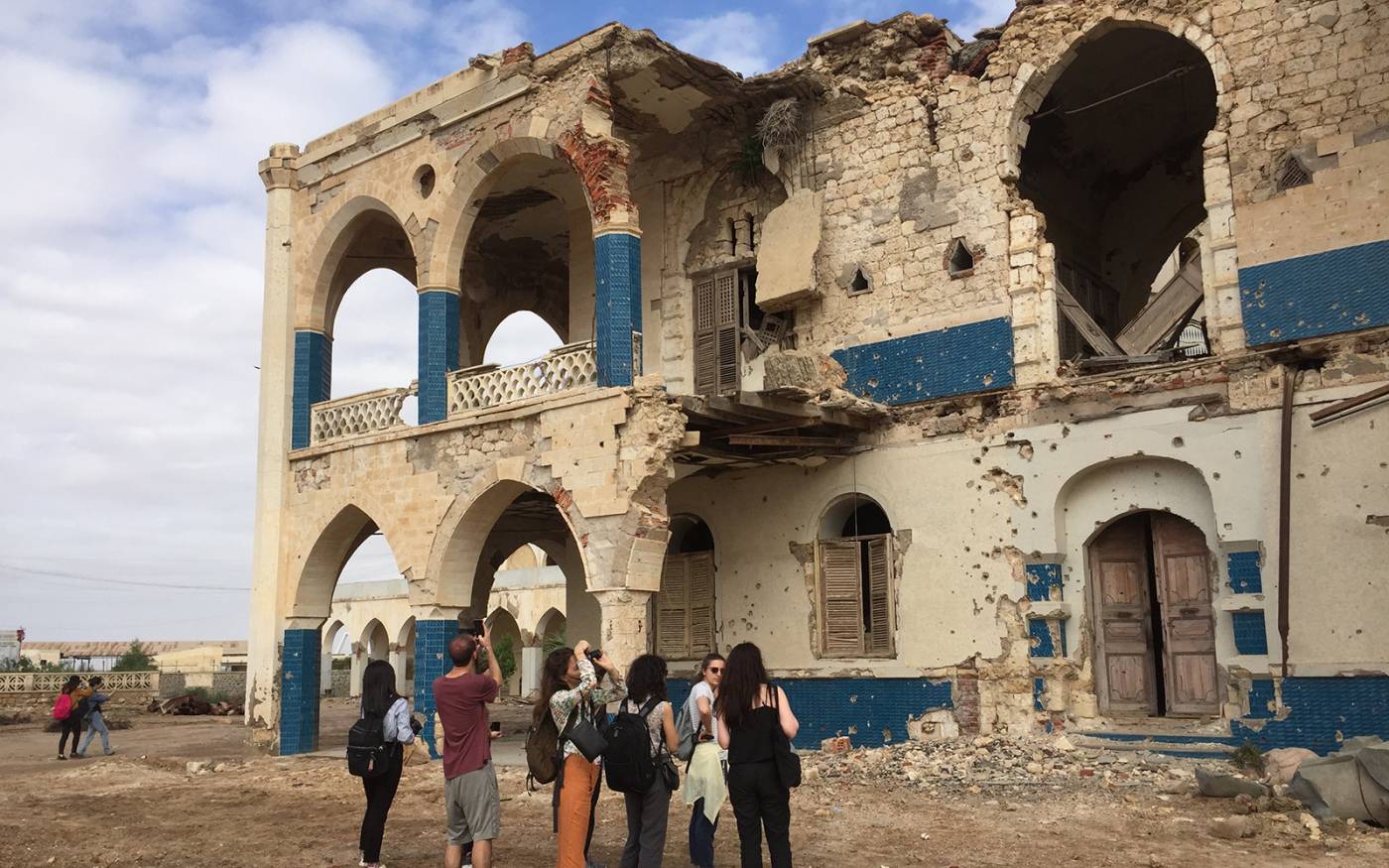
Careers
The Bartlett School of Architecture is one of the world's top-ranked architecture schools and our graduates enjoy excellent employment opportunities.
Contact
Acting Programme Director: Jane Wong
Departmental Tutor: Bill Hodgson
Postgraduate Admissions: Jane Wong
Senior Teaching and Learning Administrator: Drew Pessoa
Programme admissions enquiries: Complete the contact form
 Close
Close


